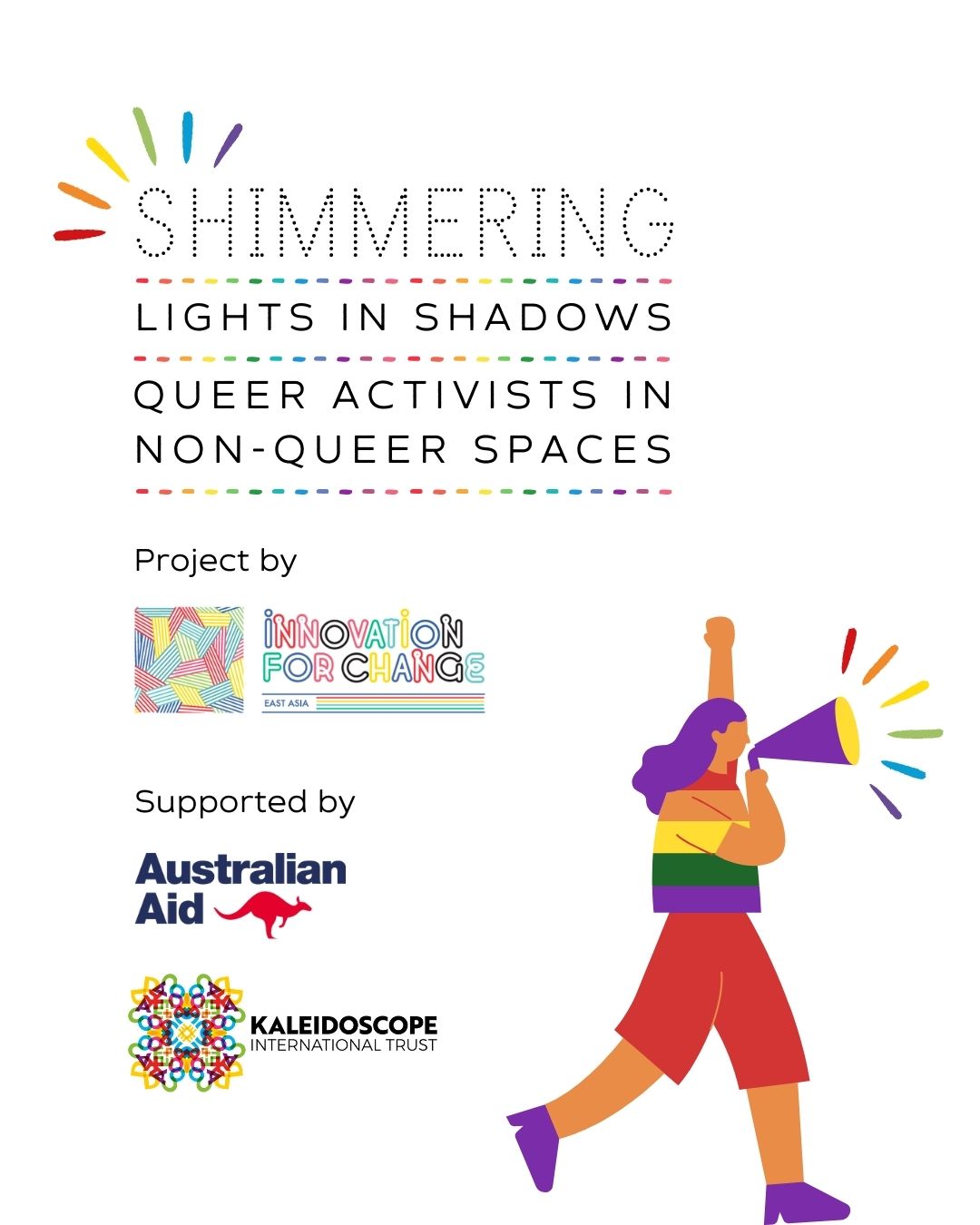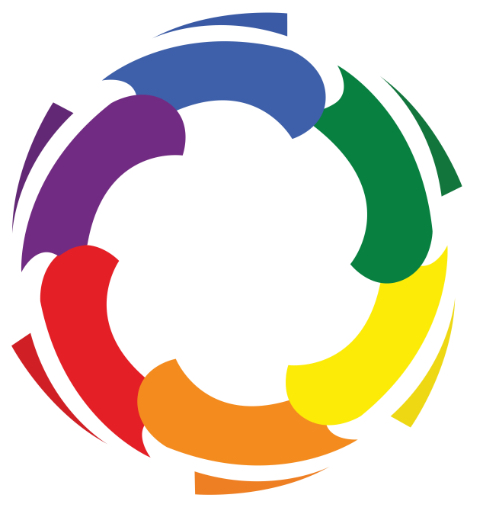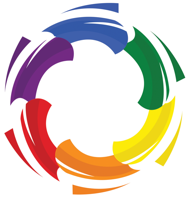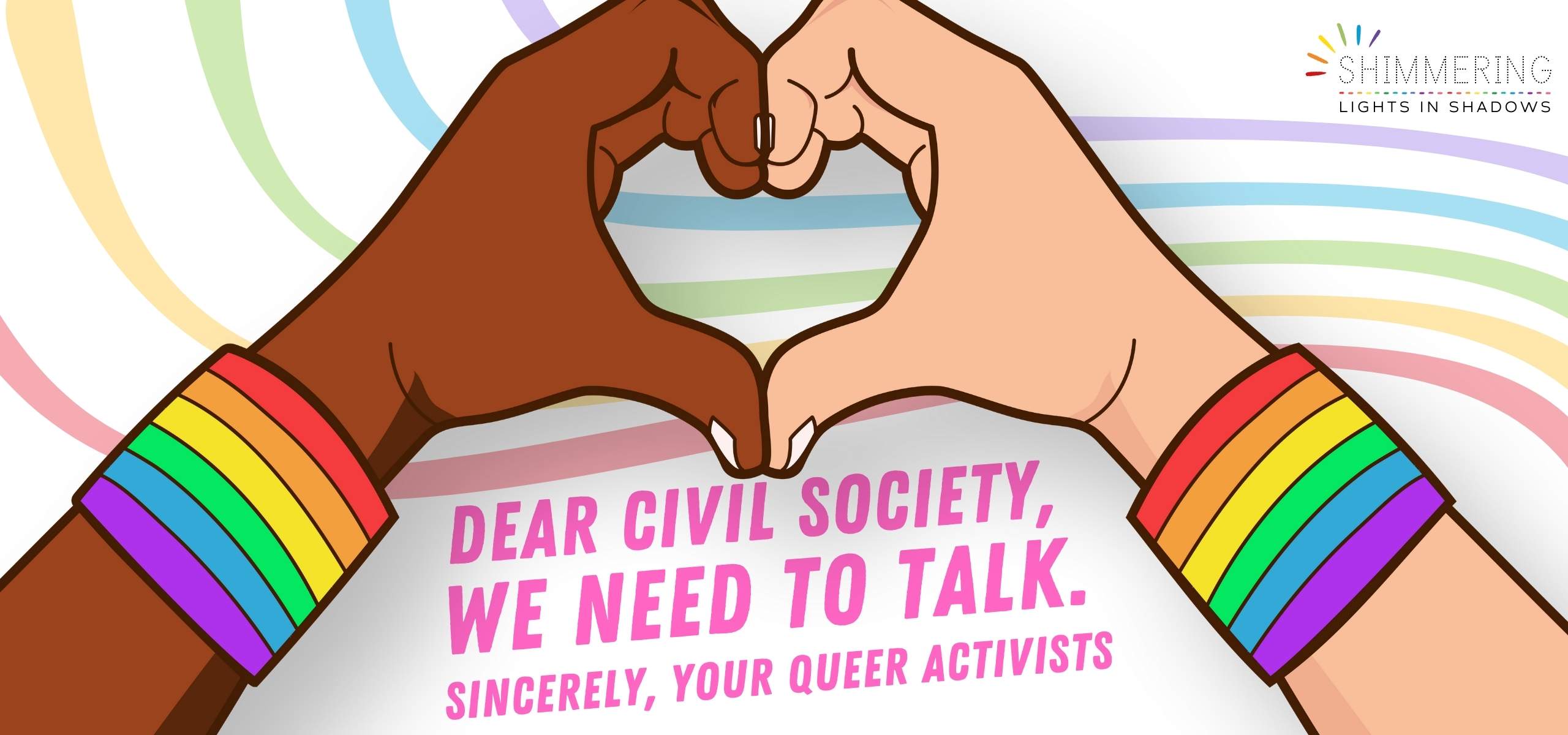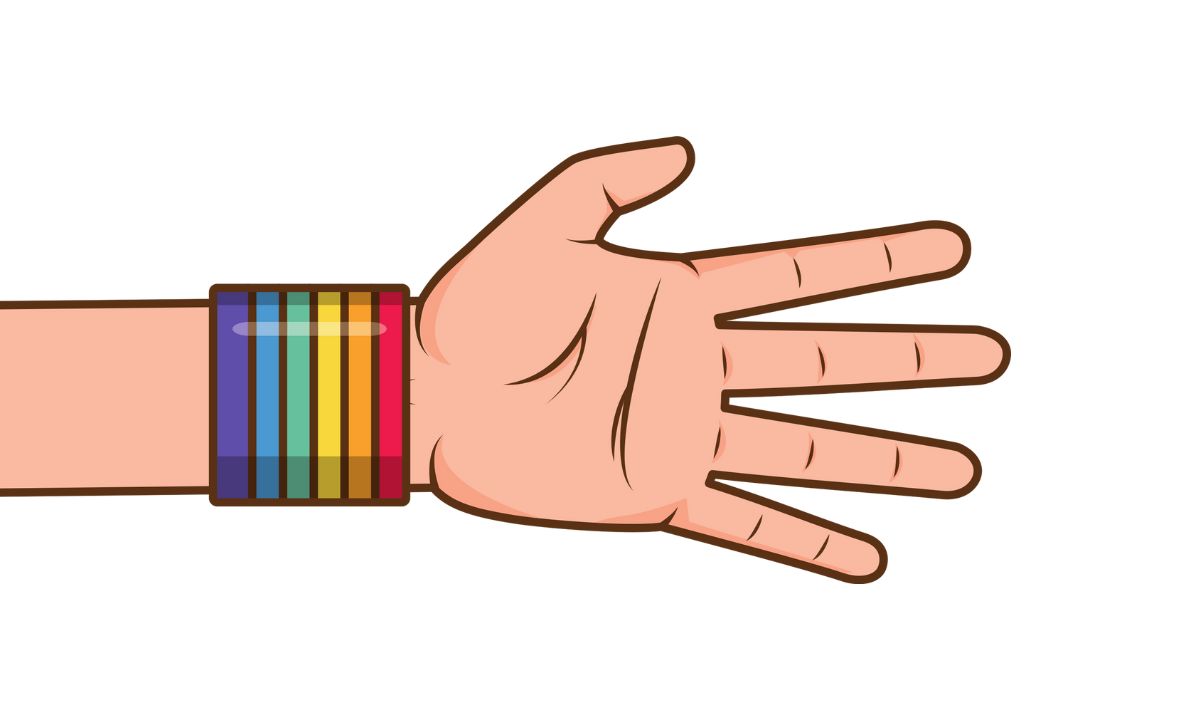
“This protection should extend to us minorities working in civil society as well.”
Civil society holds the power to protect, empower, and include all individuals—yet, for queer activists, the journey towards true inclusion often feels incomplete. Advocacy must go beyond good intentions, focusing on implementation, justice, and solidarity.Sam adds, “It’s one thing to be preaching and advocating. It’s another thing to be practising whatever you’re preaching.” True allyship requires consistency between values and actions.
For some, like Wani, the focus lies in embedding LGBTQIA+-inclusive values at every level: “What’s important is that their values and principles are LGBT-inclusive—and they can demonstrate that in different ways.”
Leave a comment below on which quote resonates with you or how you feel civil society organisations can be more inclusive for all.
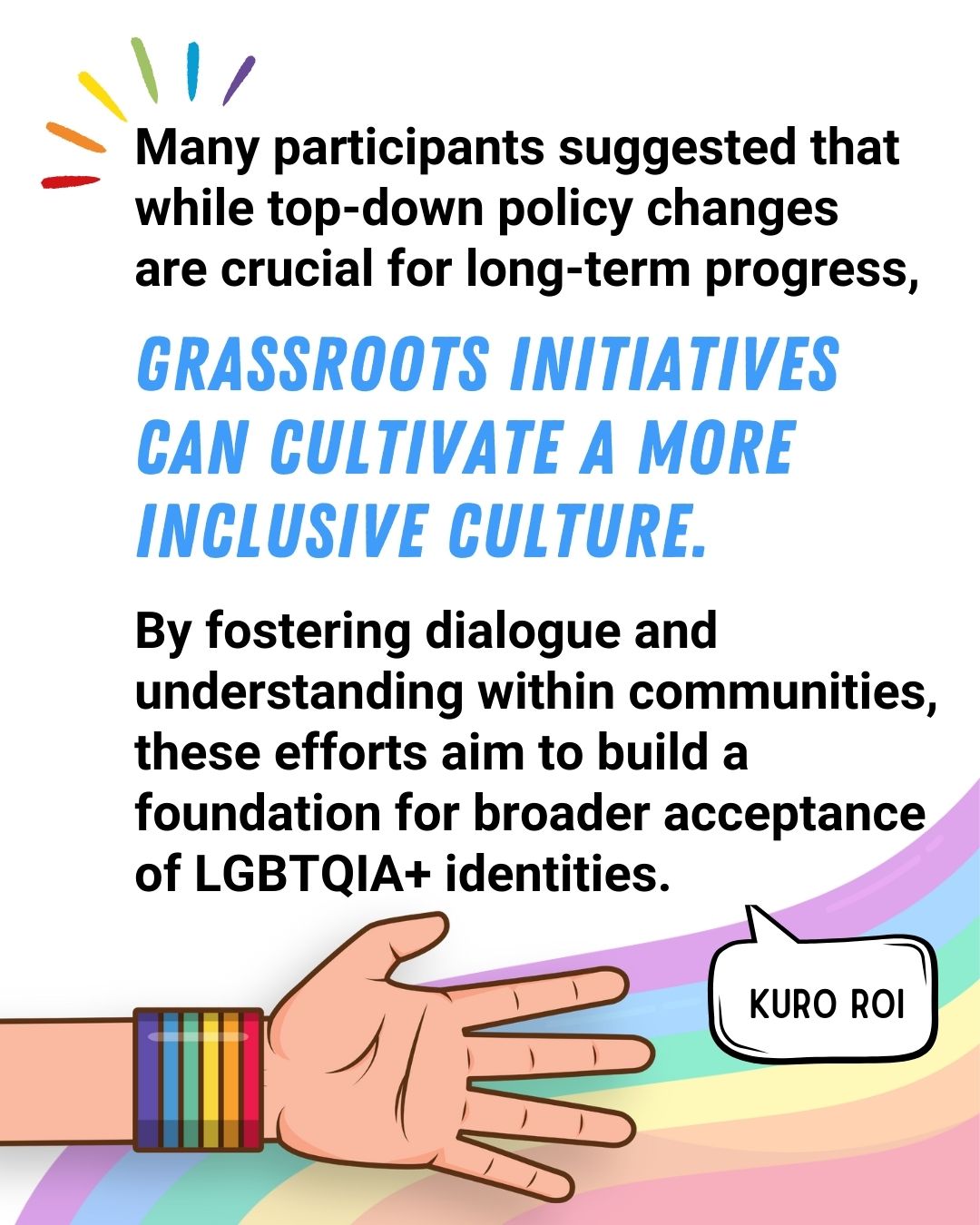
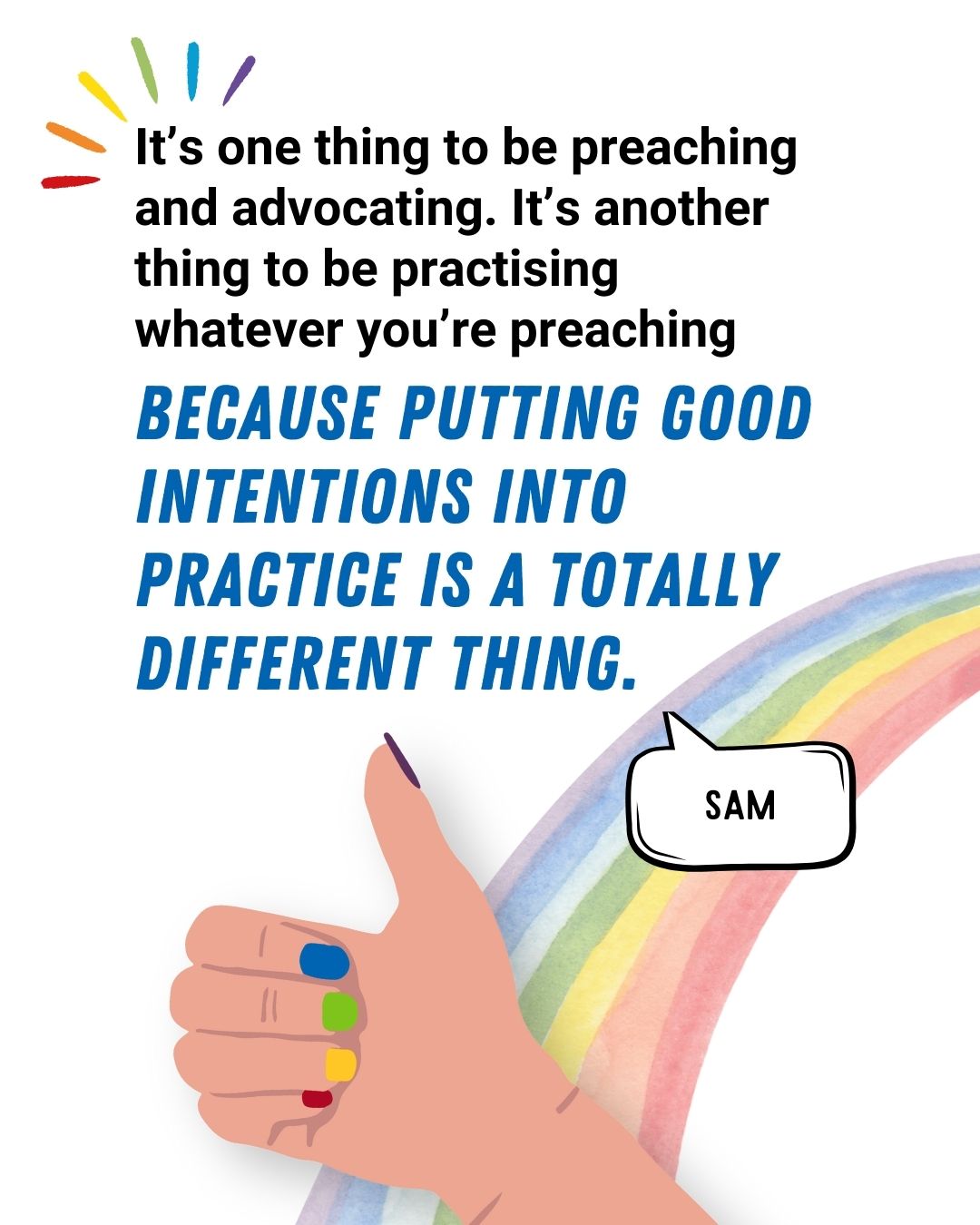
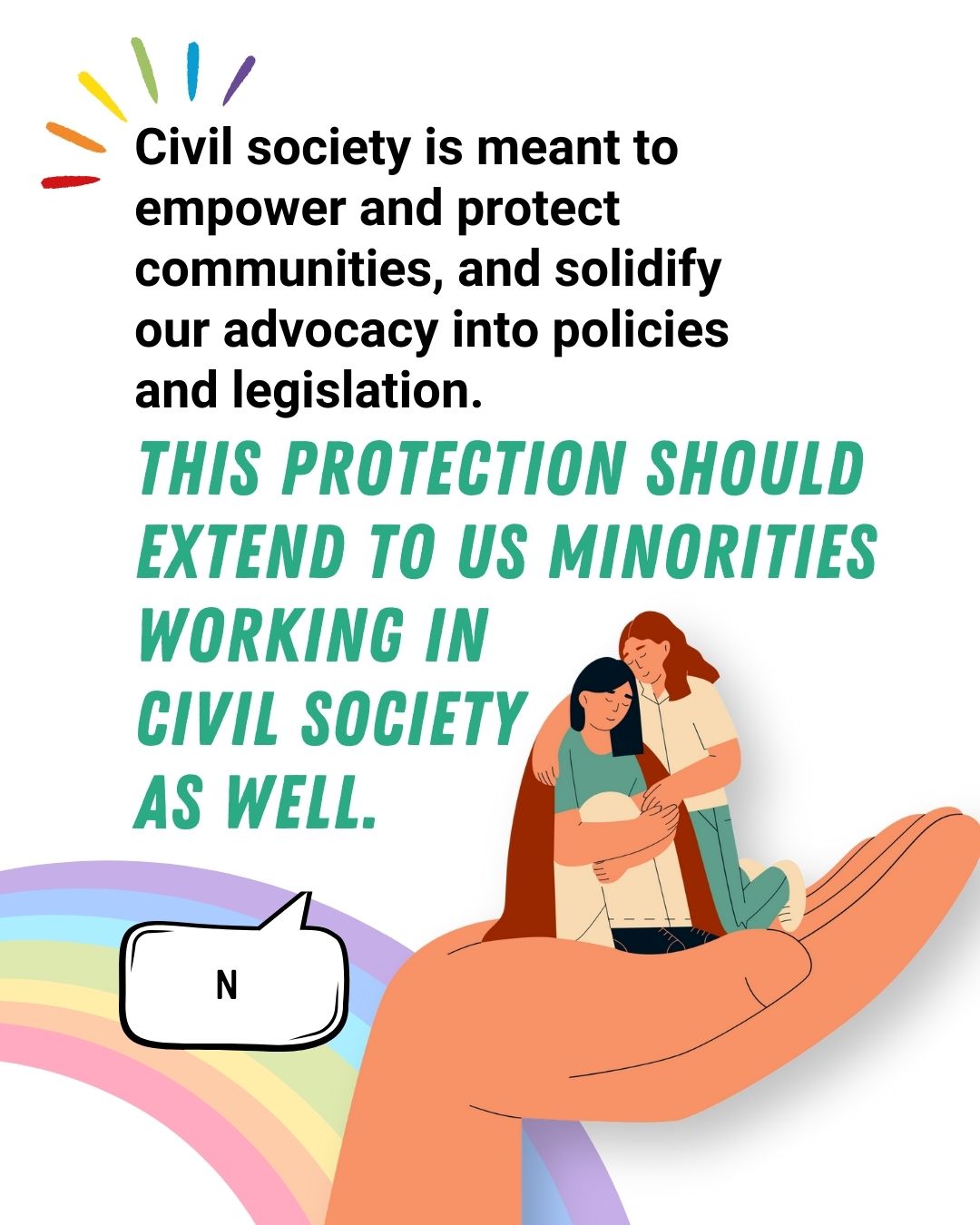
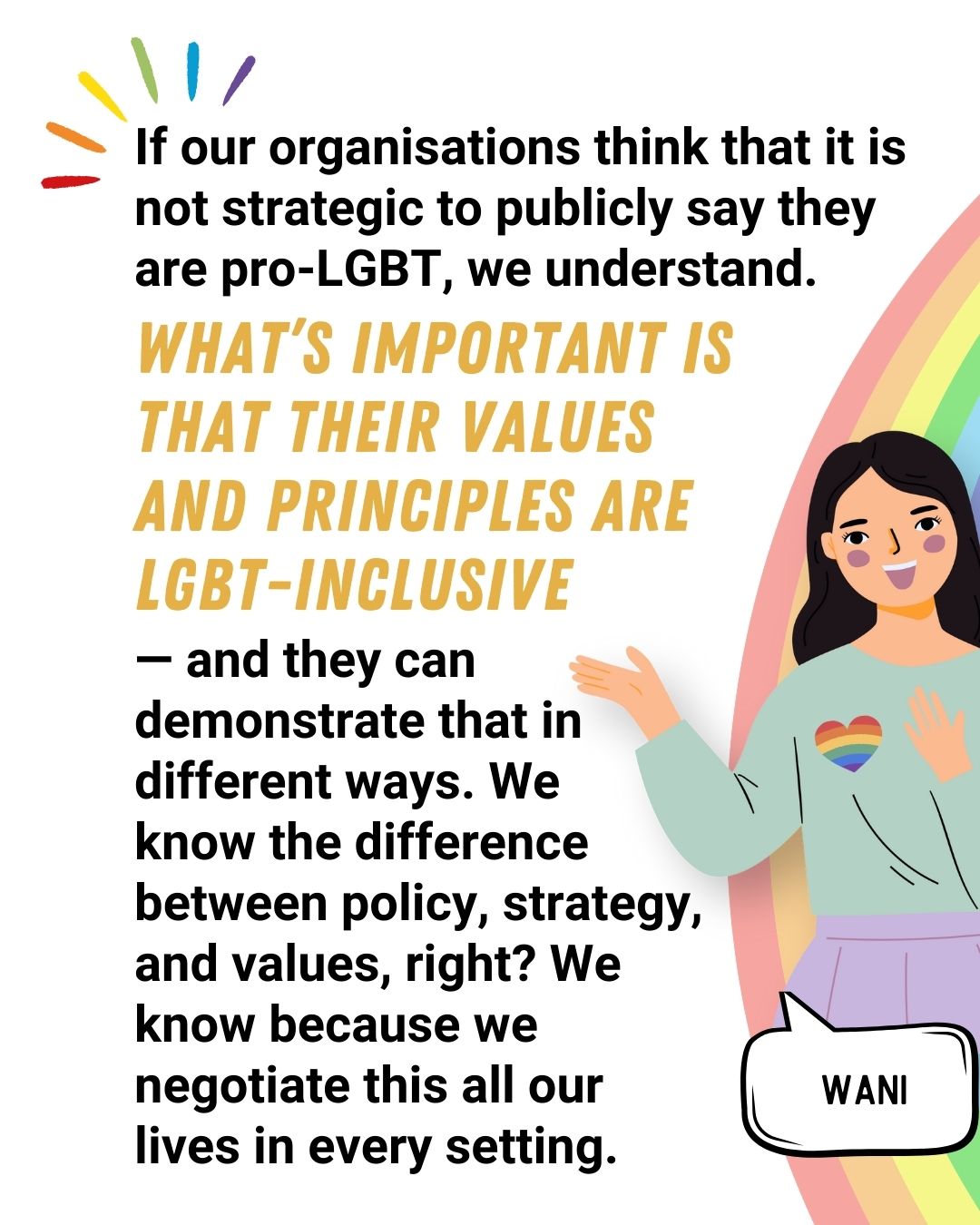
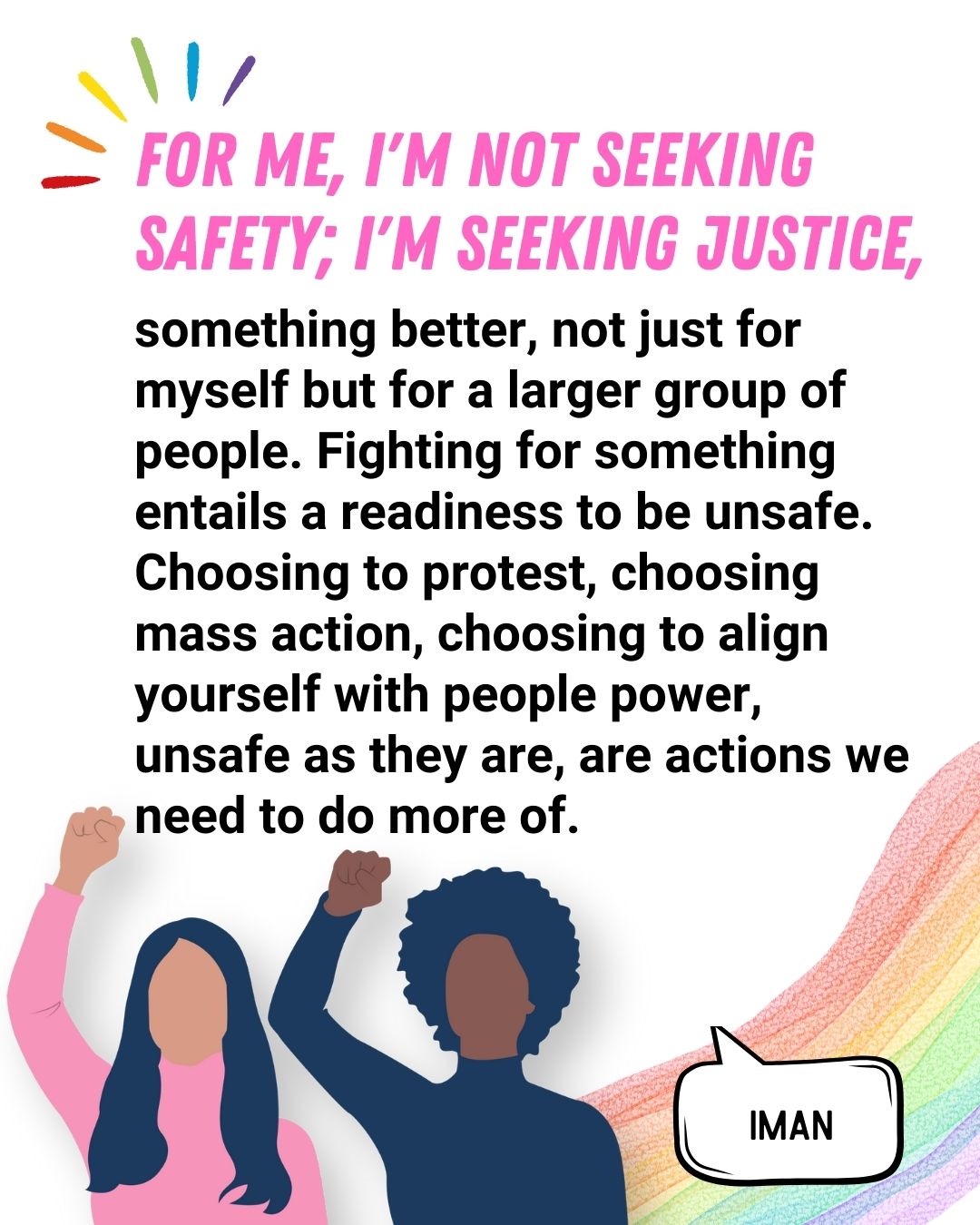
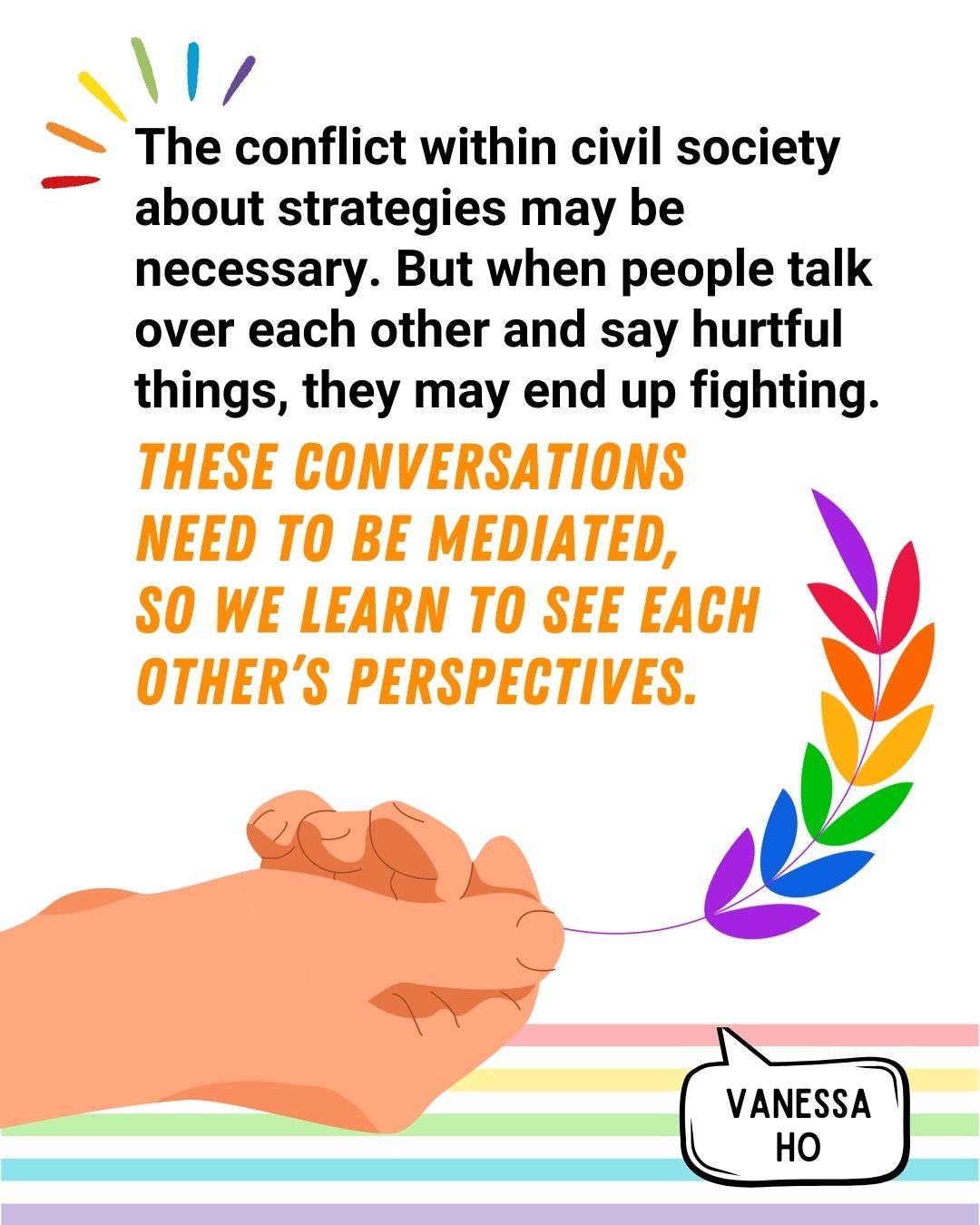
These quotes are by participants of our report “Shimmering Lights in Shadows: Queer activists in non-queer spaces”. It explores the lived experiences of 47 LGBTQIA+ individuals involved in civil society organisations across Brunei, Fiji, Malaysia, and Singapore. You may access the reports through ASEAN SOGIE Caucus or Asia Democracy Network.
Aspirational Goals
Excerpt from the Synthesis Report by Marissa de Guzman
What seems feasible for the queer activists at this point? What is hoped for that may require more effort, time, or a confluence of various factors and actors working together?
The lived experiences and realities of the queer activists in the four focus countries reveal that unspoken acceptance, in the end, has never been enough. Not being openly oppressed is also not to be equated with tolerance. And any tacit, quiet, silent, assumed, or implied word or act of tolerance is not tantamount to genuine acceptance or inclusion.
The goal for the queer community is still to be fully recognised and supported, not just tolerated for parts of themselves that society chooses to see. Part of this support should cover legal instruments and protections, to have them reflected in policies and consistently implemented.
However, the lack of policies and formal safeguards in Brunei, both in society and within organisations, leaves queer people with the unsettling feeling of not being protected while also being left exposed to discrimination, abuse, or other forms of marginalisation without recourse to proper remedies or support. Consequently, cautious optimism shapes the Bruneian queer community’s aspirational goals for and desired changes within their organisations and workplaces. Though formal legal reforms seem unlikely, the participants are hopeful for small, incremental improvements in day-to-day lives and interpersonal relationships in the workplace. Not having local concepts, strategies, or even a culture for advocacy, especially advocacy for change or policy reform, there is an acknowledgment from the queer participants about their limitations and lack of experience in advocacy work or campaigns. The challenge is that they have to look far for support on this and they have to creatively weave their way around Brunei’s complex and institutionalised restrictions to receive the support they need. “We can only see possibilities from afar, watching how neighbouring countries handle similar advocacy.” Allies are also seen as potential contributors to the foreseen ‘small, incremental improvements’ through an intersectional and intentional approach to casual conversations. When allies use their privilege to influence shifts in policy, practice, or work culture, voices and acts of support affirming the rights and identities of LGBTQIA+ individuals get amplified and may be replicated in other workplaces. Conversations, even in small circles and closed doors within organisations, are igniters of awareness; and awareness may eventually lead to an understanding of how diversity, equality, and inclusion in the workplace are essential for everyone, regardless of SOGIESC. For the Bruneian contributors, including the Report Writer, “it is important to acknowledge that LGBTQIA+ individuals in Brunei are more than just their queer identities”.
When asked about aspirational goals or what their current CSO workplaces need to improve to make the space better and safe for them, Fijian contributors had to contemplate whether there is anything beneficial afforded by their constitutional protections and organisational policy documents. Social stigma, discrimination, abuse, and hate crimes still hound LGBTQIA+ people in Fiji despite the laws in place because they are not enforced anyway. Two of the concrete recommendations offered by the Fijian contributors include: one, to conduct gender sensitivity training and gender mainstreaming in the workplace; two, to form more collaborations between LGBTQIA+ CSOs and others on intersectional advocacies and platforms, including engaging in sustained dialogues to move things forward and effect meaningful change.
The Malaysian contributors seek genuine inclusion in communications and action – where queer people are consulted in policy making and in ensuring the creation of safe spaces for such conversations. Inclusion is also seen in seeking and welcoming less visible queer people into safer civil society workplaces. Where existing CSOs already support diversity, gender equality, and inclusion, the challenge is to operationalise the support for queer people. These policies must have felt effects and queer activists have to actually feel safe, protected, and supported in the workplace. An openness to new practices, innovative strategies, and adding the intentional and intersectional queer lens in programme building will produce better equipped and more empathetic leaders, including empowered queer leadership. Representation matters. Institutionalised and formalised care is a significant ask – one that is also completely substantiated by lived realities and reported experiences of stress and anxiety brought on by layers of discrimination and abuse, including the navigation strategies employed by queer activists to survive society and their workplaces. Policies may take a while to put in place, but civil society can also begin by implementing simple steps. Include SOGIESC in safeguarding practices, introduce personal risk assessment that is separate from assessment and management of organisational risks, raise awareness on gender equality and inclusion… and then be inclusive in practice.
The Singaporean experience shows the benefits of exploring intersectional interests and advocacies for coalition building. It is, therefore, a continuing aspirational goal to forge more partnerships, coalitions, and collectives on social justice issues. Acknowledging differences and disputes between and among CSOs, or maybe even among HRDs and activists pursuing their respective advocacies, is essential to grow movements. Discuss and debate with the intention to discover points for convergence and solidarity, while maintaining respect when you disagree and where plans or strategies may diverge. The Singaporean queer activists yearn for transparency and accountability in CSOs and their collectives, for inclusion and equality reflected in non-hierarchical organisational structures and safe spaces. Support services should include risk management and the provision of resources and services that cover mental health and well-being. The leadership within CSOs should also articulate organisational values and principles and have these reflected in policies that are clearly communicated and implemented.
You may access the Synthesis Report through ASEAN SOGIE Caucus or Asia Democracy Network.
